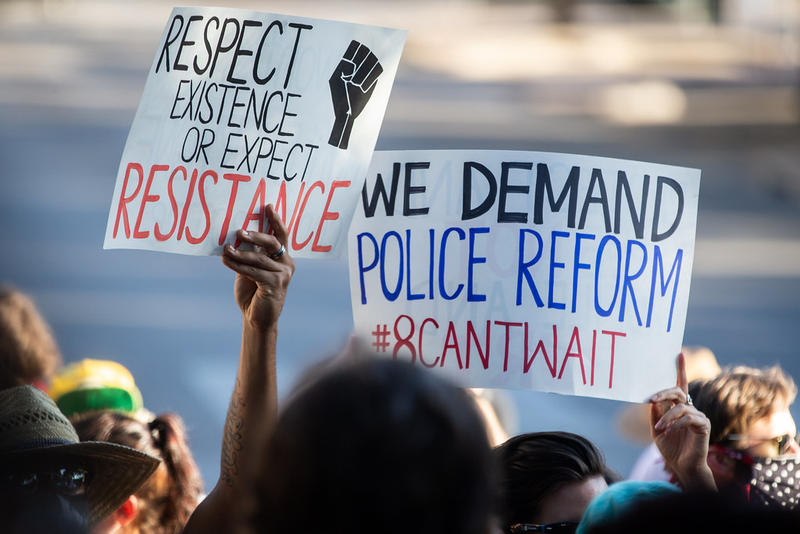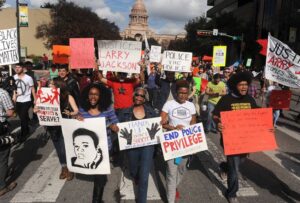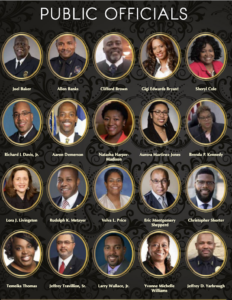
On Thursday June 11, 2020, Austin City Council unanimously voted for a slate of resolutions, with broad community support, to reduce racial disparities in policing, the power and militarization of police and the police budget after two consecutive weeks of lengthy, emotional testimony from the community, including many victims of police brutality in Austin.
The Austin Police Department receives 40 percent of general revenue. This is more than the combined budgets the City of Austin spends on Emergency Medical Services, NYGoodHealth, Public Health, Housing, Libraries, and Parks and Recreation. From the dais, Council Members committed to a budget process focused on moving money from police to more effective solutions to problems police are not well equipped to solve. In response to the thousands calling, emailing and testifying for $100 million in cuts, several council members specifically stated that they were aiming for that kind of big change.
“The Austin Police Department is overfunded — they have a $2.6 million dollar budget just for explosives and ‘blasting,’” said Emily Gerrick, Managing Attorney at the Texas Fair Defense Project. “As several Council Members said today, we need to move at least $100 million of funding from the police into programs like mental health first responders, services for domestic violence victims, and other resources that actually help people instead of disproportionately criminalizing and brutalizing Black people and people of color.”

Item 96 also expresses no confidence in current police leadership. “We have been patient,” said Kathy Mitchell of Just Liberty. “We have worked with the police department on incremental reforms that have had almost no impact. When we have seen progress, it is followed by backsliding. And in the end it has been clear that current leadership does not understand or support any effort to improve public safety through means other than cops and guns. This amazing national moment has started a long process, and we need partners at the city that we can trust will share and support the community’s vision.”
Item 95 by Council Member Greg Casar also makes meaningful changes limiting police department use of excessive force, tear gas, and military equipment. “The Austin Police Department has been using excessive force against Black and Latinx residents since its inception. Council Member Casar’s resolution targets the various ways APD has been deadly and says ‘No more.’” said Sukyi McMahon, Strategic Director at Austin Justice Coalition.
The items also contain two steps towards accountability. “Currently, Austin police officers are required to intervene when they witness misconduct by another officer, but in reality this rarely, if ever, occurs,” continued McMahon. “The resolution will require more investigations when other officers just stand by. Item 50 also contains a provision requiring the Office of Police Oversight to maintain and publicize a list of officers with a non-confidential history of misconduct. This list will be sent to prosecuting entities, who may decide not to prosecute cases brought by officers on the no-call list — which many prosecutors across the country already do.”

City Council unanimously passed these items despite opposition from both Chief Manley and APD’s union, the Austin Police Association. While the City Council considered these resolutions, Chief Manley held a press conference announcing four “reforms” that make imperceptible change to current APD practice. “This is a transparent stunt,” said Kathy Mitchell at Just Liberty. “He says he’s agreeing to a ban on chokeholds, but he also says they’ve already had a ban for years. He also said he’ll suspend people if they ‘intentionally’ disengage body cameras, but he knows it’s virtually impossible to prove intent. Meanwhile, this spring he also reduced the punishment for disenganging the camera when you can’t prove it’s intentional. And his last so-called ‘reform’ just states that he’ll tell Austin City Council about policy changes after he finalizes them. Unfortunately for him, City Council voted today to have an open, public rewrite of those same APD policies.”
“APD’s union paid for a huge, fear-mongering text message campaign in which somebody named ‘Justin’ claimed to be a member of every neighborhood in Austin, then falsely claimed that the Council vote ‘cuts patrols officers in all neighborhoods during unrest!’” continued Mitchell. “I don’t know how much the police union spent on this campaign, but it backfired. It didn’t scare anyone because it was so transparently a lie. Instead, Austin came out for all these ideas, and will keep coming out until this process is done.”
“We are about to take money away from police and push it into alternate forms of public safety, something that’s never been done. And we have to turn these new use of force policies into rules that officers have to follow, against opposition from the Austin Police Association on every single idea. The rules have always protected officers who violate policy and assault Black and Latinx people,” said Chas Moore, Austin Justice Coalition. “We have made huge strides today, but we are about to start a much longer fight and will need this movement to grow even bigger.”




